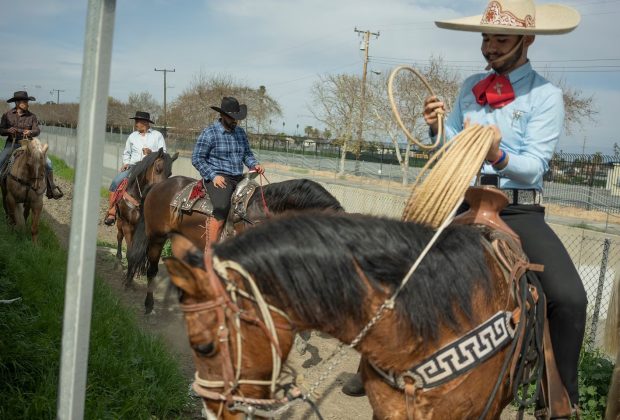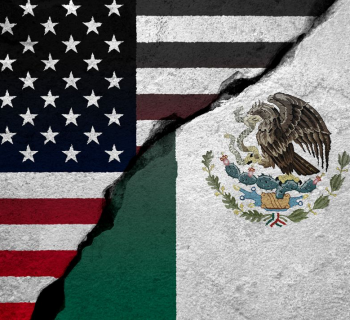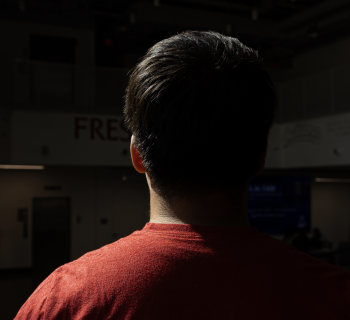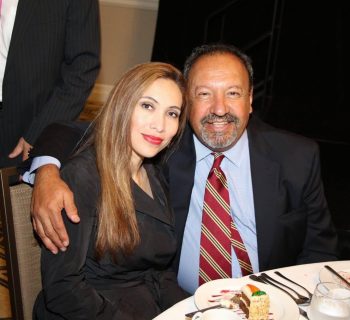The city known for its Black culture has flipped majority Latino, but its leadership remains all Black. A group of Latino vaqueros want to change that.
By Sylvia Foster-Frau | The Washington Post | MAY 18, 2023 | Photo by Karla Gachet
COMPTON, Calif. — The riders on horseback clopped past corner stores and barking dogs, through busy downtown streets and along a creek feeding the Los Angeles River, spurs on their boots, sombreros on their heads and chaps riding up their calves.
“This is the forgotten Compton,” Rogelio Diaz said on a recent Sunday, while riding his 12-year-old horse, Yolie.
The city south of Los Angeles is known as one of the great hubs of Black culture, producing countless Black athletes, rap legends and other celebrities, including Serena and Venus Williams, N.W.A. and Kendrick Lamar.
But Compton is no longer a Black city. Forty years ago, the city’s population was 74 percent Black; now it is nearly 70 percent Latino.
On weekly rides, Diaz and other members of his nonprofit, Connecting Compton, want to remind the city’s 93,000 residents that vaqueros on horseback — a Mexican American tradition — are as representative of this community as the pop culture references for which it’s better known.
Public perception isn’t the biggest obstacle Compton’s Latino activists say they face to gaining greater recognition: The city’s leadership still reflects its demographic past, with an all-Black city council and school board. It has never had a Latino mayor. Its first and sole Latino council member was ousted last year after being accused of election fraud.
Latino activists attribute their lack of representation in Compton’s elected offices to a struggle to find candidates and traditionally low voter turnout, among other issues. In 2021, during the city’s last mayoral election, Latinos made up an estimated 38 percent of votes cast despite being 50 percent of registered voters, according to a Washington Post analysis of voter registration data from the political data firm L2. Black residents accounted for roughly 45 percent of votes cast, while making up only 32 percent of registered voters.
The entrenched Black leadership has also done little to engage with the Hispanic community, Latino activists say, while clashing over the need for Spanish-speaking government workers. That has resulted in a lack of murals and monuments dedicated to Latino heroes, they say.
“It’s a very pro-Black environment right now in the administration within Compton,” Diaz said. “It’s just constant events and movements that are pro-Black and not necessarily for all in Compton.”


Compton began voting in Black leaders, including its first Black mayor, in the 1960s after the civil rights movement and the passage of the Voting Rights Act.
In a statement, the city’s mayor, Emma Sharif, who is Black, said she is proud of Compton’s history “as one of the first and only cities in the region to have as much Black representation as we have had.” Being voted into public office “while Black Americans fought racial segregation and discrimination — that has a special significance for me,” she added.
She “cannot speak to why” there has never been a Latino mayor, Sharif said. “I hope there will be more Latino representation in our future.” In the meantime, she said, the city is doing “quite a bit to engage with the Latino community, but we know there is always more to do.”
Some Black residents say they fought too hard for political power to relinquish it just yet — and that Compton’s Black leaders are still battling racism from other racial groups.
“It’s like ‘Game of Thrones’ We have to keep this power. We have to keep the little bit that we have, which is all we have,” said Nina Childs, a Black local activist and filmmaker. “And we’re not giving it up.”
The story of people of color calling on White leaders to cede power for more diverse representation is deeply rooted in American history. But Compton reflects a newer power struggle, which experts say the nation may see more of in the years to come as traditional White and Black strongholds grow more Latino and the Latino community demands more political representation.


The tension is driven by the continued growth of the Latino population, already about one-fifth of the country, while the White population declines and the share of the Black population stagnates.
New York and Houston, two of the nation’s most populous and diverse cities, haven’t had a Latino mayor in more than 100 years. Neither has Chicago, the nation’s third-largest city, whose Black and Latino populations are nearly on par.
“Political power is probably always the slowest thing to change because you control the money and the resources that you don’t want to give up, especially if you fought for it for a very long time,” said Jennifer Jones, a University of Illinois at Chicago and author of “The Browning of the New South.” “That power is difficult to let go of and you still have some constituents that you want to make sure are not abandoned again.”
The mounting tension from these demographic changes erupted into public view last year in Los Angeles, where Latinos make up half of the population but less than a third of council seats. In a recording leaked in October, council members discussed ways to increase Latino representation through the redistricting process using vulgar and racist language against the city’s Black and Indigenous communities. The release of the recording led to days of protests and three Latino leaders resigning.
The Los Angeles council’s controversy did a disservice to Latinos seeking better representation across the country, said Adriana Orozco, a Compton community advocate. Conducting conversations about increasing Latino representation with her Black counterparts without appearing anti-Black is already challenging, said Orozco.
“It’s sad and it’s discouraging, but I’m not going to let that stop me … it’s actually going to push me to be better,” she said.
On Connecting Compton’s weekly rides, Diaz and the other riders are waging their own campaign. Children scamper out of houses to pet the horses’ manes and neighbors in their yards pause to wave as they pass by. They’re preparing for their next horse parade — a cabalgata — later this year which typically draws hundreds of residents, mostly Latinos, who they hope to turn into voters in the 2024 election.
“This is our opportunity to tell our story, our opportunity to capture the history, to talk about it and get people involved,” Diaz said.

Little progress
Compton has been at the center of fights for power before. It was once a predominantly White, wealthy community where actor Kevin Costnerwas born in the 1950s.
Black people were kept out by racial covenants that prevented them from buying homes. As those restrictions were lifted, Black families moved in and White people left. In 1963, the city elected its first Black city council member, marking the start of Compton’s rise as an iconic Black stronghold.
But as the city’s crime rate exploded in the 1980s, some Black families began to leave for wealthier, safer communities. They were replaced by Mexican and Central American immigrants, some of them undocumented, seeking cheap rent and working-class jobs. The demographics of the city changed but it remained poor with a 17 percent poverty rate, compared to 11 percent nationwide. Only 9 percent of residents have a bachelor’s degree or higher.
Compton didn’t elect its first Hispanic city council member, Isaac Galvan, until 2013, after a lawsuit against the city argued that the at-large council positions discriminated against Latino voters. It led to single-district council seats, and Galvan served for nine years until being ousted after a judge ruled he had rigged votes to win his 2021 reelection campaign. Galvan denied the allegations.
In the years since, advocates say there has been little progress.


Although about 65 percent of residents speak a language other than English at home, some government documents are still not translated into Spanish, local events rarely incorporate Latino cultural touchstones — such as mariachi troupes or papel picado — and Latinos are not represented enough in the artwork across the city, local Hispanic advocates say.
For years, Candace Leos Valdepeña, founder of Compton Advocates, which champions local Latino issues, has translated city and community notices for Spanish-speaking residents, while hosting citizenship classes and Mexican bingo.
“We’ll have raspados and Mexican candy and treats, bacon-wrapped hot dogs for everyone to enjoy,” she said. “And while they were there, then all right — let’s talk about how there’s an election coming up.”
Recently, President Biden signed a bill, introduced by Nanette Diaz Barragán (D), to rename a post office after James Anderson Jr. — a Compton native who was the first Black Marine to earn a Medal of Honor.
“You’d think they’d do more research and realize the community isn’t majority Black anymore. And hey, why aren’t we recognizing the Latino community that has lived here for a long time as well?” said resident Christopher Martinez, 22.

City leaders say the Latino population is being served well.
“When people come to me and say there’s no Hispanic representation, I say show me where Hispanics are getting shortchanged. Show me where these kids are not getting the best education,” said Charles Davis, school board president,citing the school district’s graduate rate, which is nearly 90 percent, according it its website.
The city’s mayor, Sharif, declined to be interviewed for this story but said in a statement that Compton in recent years has begun translating community materials and city meetings into Spanish in real time. She hasn’t received complaints about the need to increase Latino representation in city murals or events, the statement said.
When asked about the city’s outreach to the Latino community, Sharif cited the creation of the Compton Community Empowerment Coalition, describing it as “an inclusive coalition aimed at bringing the Black and Latino communities together to discuss neighborhood issues.”
But the founders of Connecting Compton, Vecinos Unidos por Comptonand Compton Advocates — among the largest Latino-led groups in the city — said they had not heard of it.

A historic mayoral race
In 2021, Cristian Reynaga became the first Latino mayoral candidate to run in the general election.
The race quickly got ugly.
Reynaga, who was born and raised in Compton, said he faced anti-Latino discrimination during the campaign.
“His concern will be for Hispanics just like other Mexican mayors,” read one text sent to a member of Reynaga’s campaign staff, which was reviewed by The Post. “Next thing he will be having kids from the border in Compton.”

It’s important to keep Black people in charge, said Jasmine Gates, 27, founder of the New Black History Makers in Compton, who supported Reynaga’s opponent, Sharif.
“Once we hand that power over to a Hispanic, or non-Black person, it’s going to be hard to get that back,” Gates said, sitting alongside Childs, the local activist and filmmaker, inside the Yetunde Price Resource Center, a meeting space funded by the famed Williams sisters and named after their sibling, who was killed in a drive-by shooting in Compton.


Latinos should have representation in leadership, she said, “but as a Black woman I have to advocate for the representation of the people that look like me.”
Childs chimed in: “We want you [Latinos] to have representation too. It’s just having to be the right representation.”
“Essentially we all want the same thing,” Gates said. “We don’t want a different Compton. We want a safe Compton, we want a better Compton, we want a Compton of leaders that hear us. The desires aren’t far-fetched.”
Reynaga narrowly lost the nonpartisan election to Sharif by about 200 votes, or 2.5 percentage points.
Given the small margin, change may be coming soon, said Robert Lee Johnson, a Compton native and author of “Notable Southern Californians in Black History.”
“The next voting cycle, the next couple of cycles, you’re going to see a big change in Compton,” said Johnson. “What we’d like to see is a multicultural, mixed administration working for the betterment of the community as a whole, and I really think there’s a chance for that to happen.”

‘The real Compton’
Compton’s most famous cowboys are not the Latinos on horseback who proudly stroll through city streets. It’s the Compton Cowboys, founded in the 1990s by a group of Black men to combat negative stereotypes and help keep the city’s youths out of gangs. In 2019, Diaz and two fellow horseback riders decided to launch their own group, Connecting Compton, to raise awareness of Latinos’ large presence in the community.
Last year, Connecting Compton led a voter drive in Arizona to get Navajo members to the polls. This year, they plan to replicate that effort in Compton.
“The Black community is really engaged. They show up. But the Latinos don’t,” said Valdepeña. “That has probably been my biggest challenge, is figuring out the best way to get my people to understand like, your voice is powerful and important as well — and your vote.”


Daniel Zepeda, 32, a Connecting Compton co-founder, lives in a low-slung home down an agriculturally zoned residential street in Compton that belies an entire strip of land behind it full of crowing, neighing and mooing animals. He has numerous horses, goats, cows, dogs and chickens.
In the mornings, he and his neighbors often drink homemade pajarete, a traditional drink made with fresh goat’s milk. In the evenings, they tend to their animals, milking the cows and taking their horses out for exercise.
“This,” Zepeda said, “is the real Compton.”
Lenny Bronner in New York contributed to this report.






